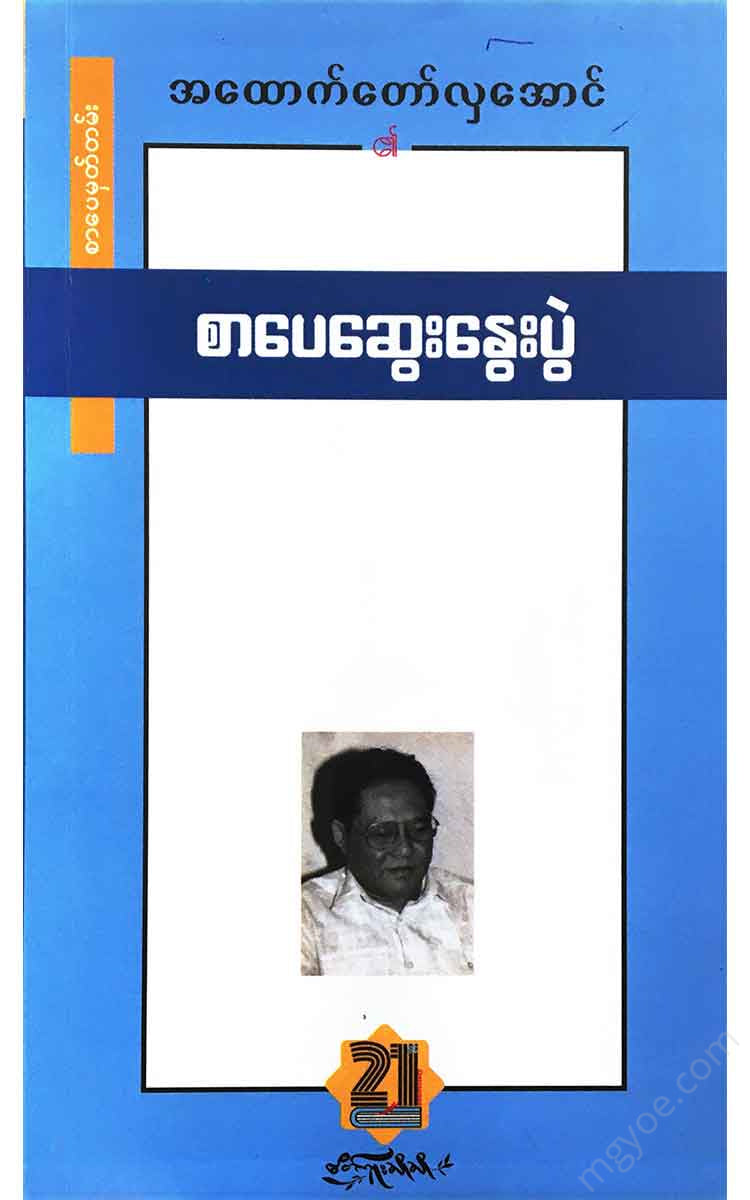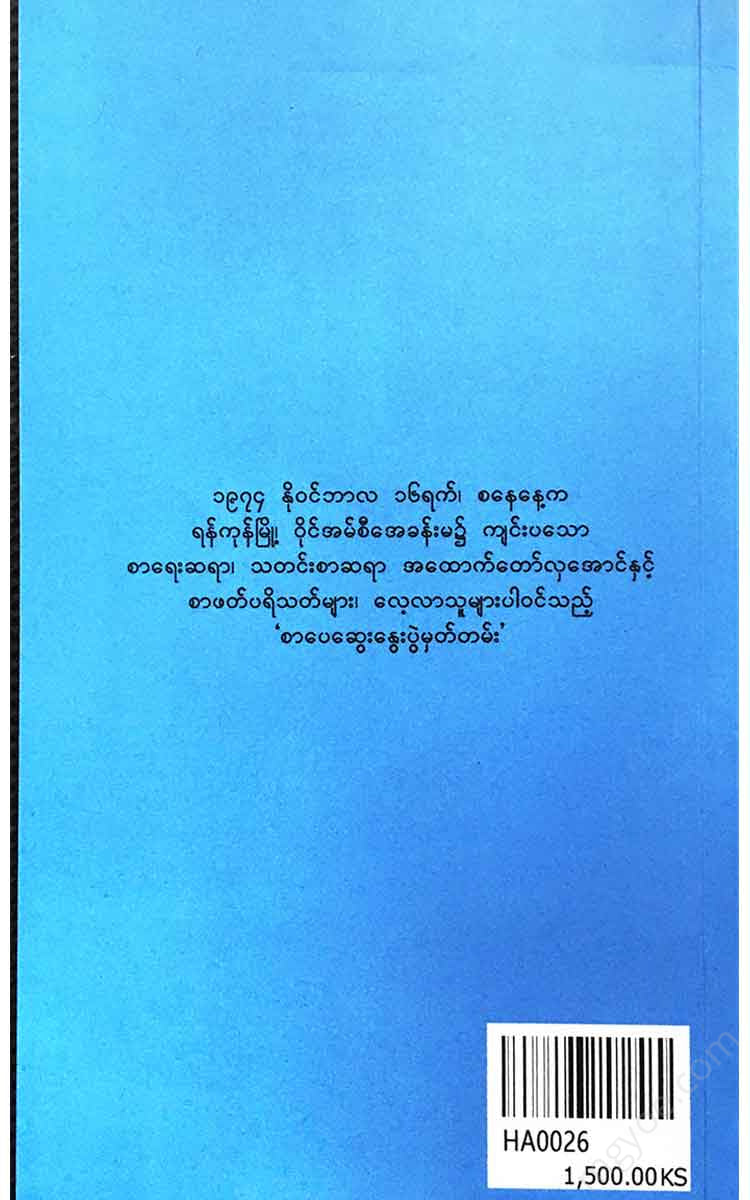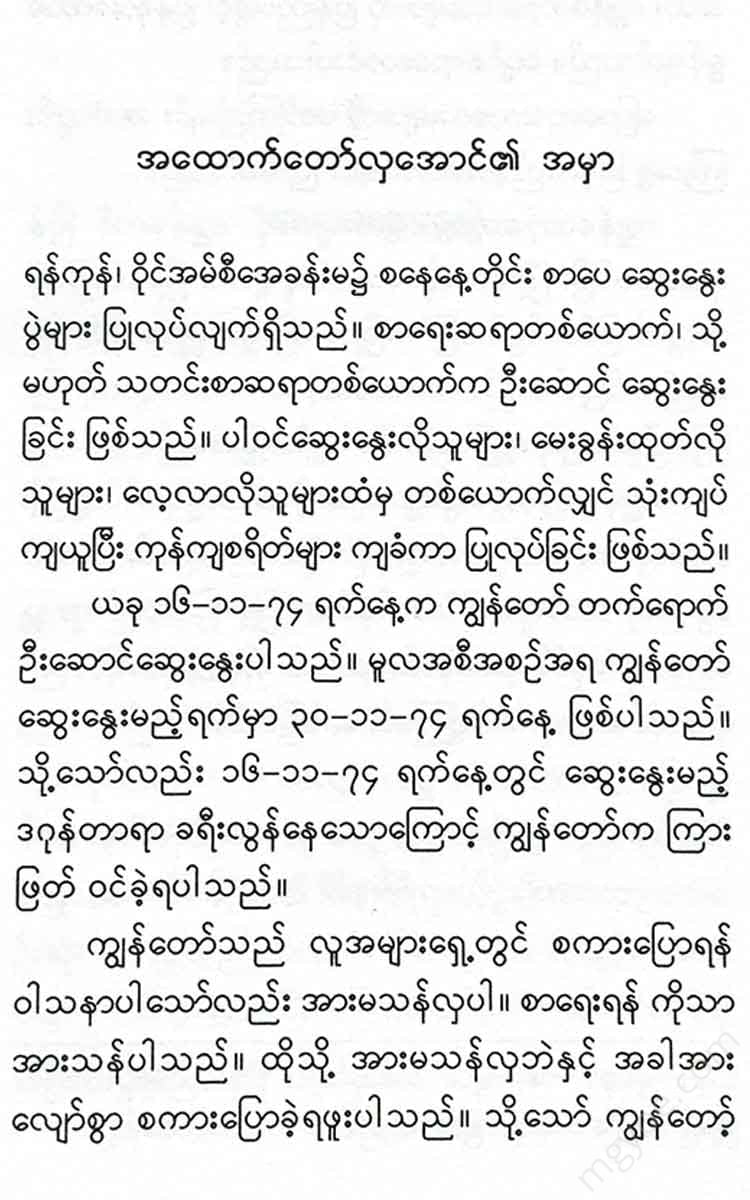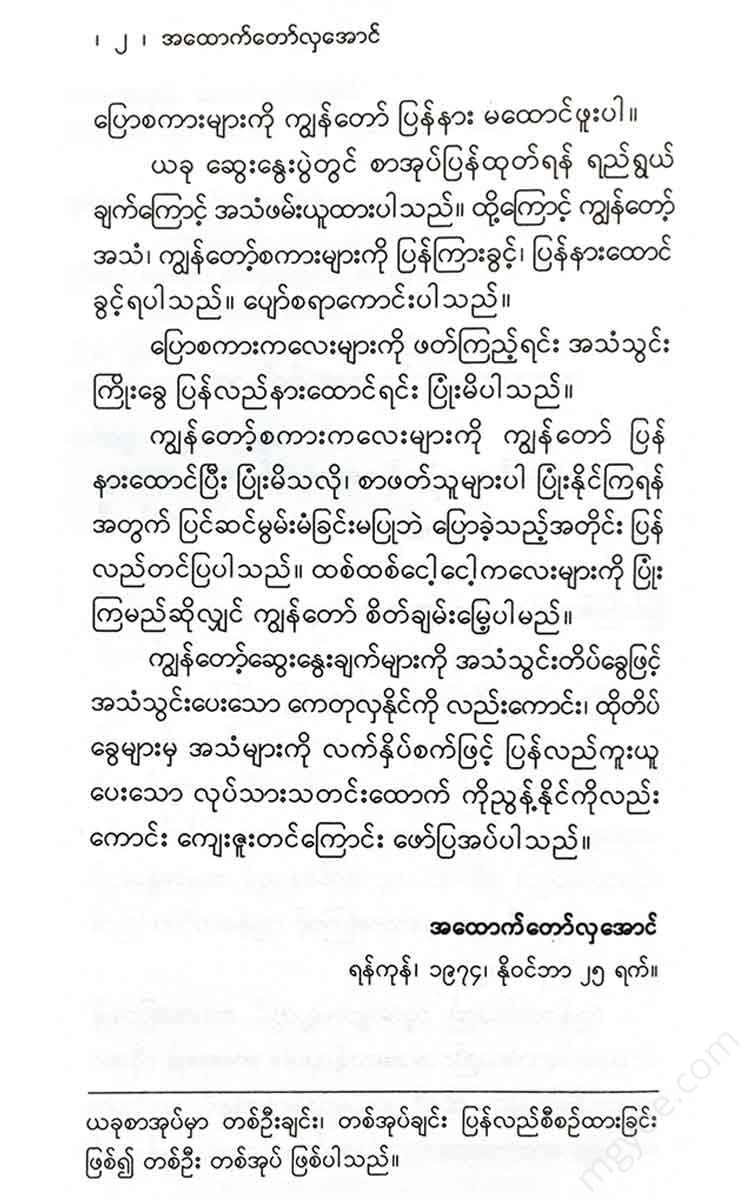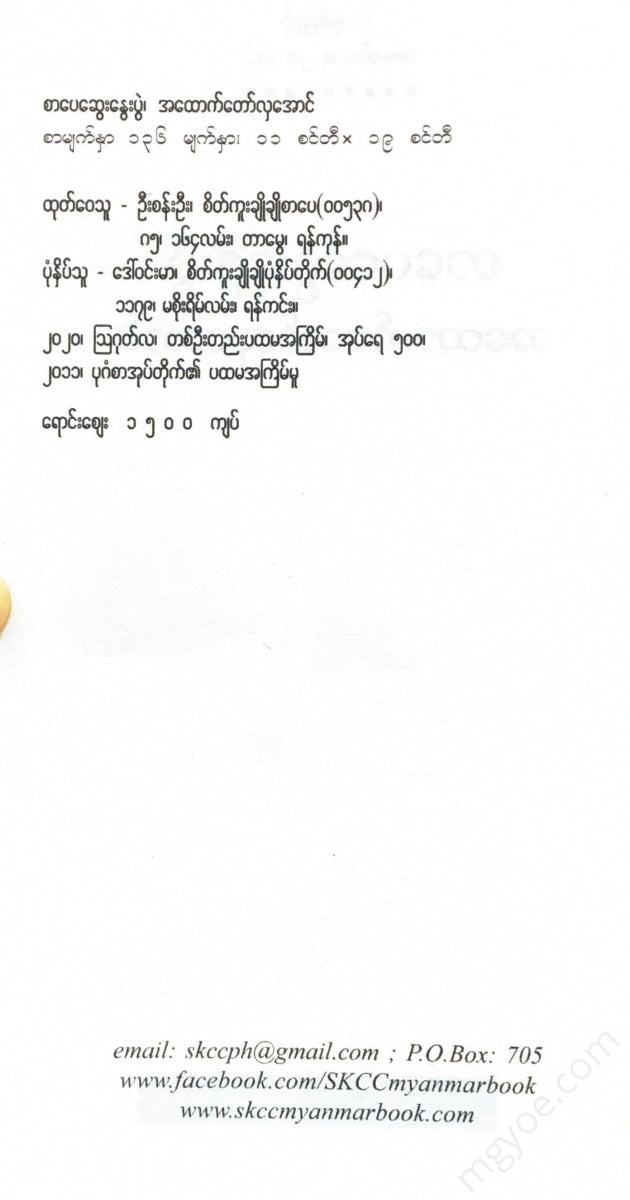စိတ်ကူးချိုချိုစာပေ
Athitaw Hla Aung - Literary Discussion
Athitaw Hla Aung - Literary Discussion
Couldn't load pickup availability
Literary discussion
First part questions
At a time when prices are skyrocketing, with onions costing around 11 kyats, I am grateful that you saved up for a meal and came to me for three kyats.
I was a little nervous about attending this seminar. I have attended quite a few lectures. I have spoken in a lot of debates. I have also faced some writer-reader meetings. However, this was my first experience with the kind of event I was going to face, and I was afraid of the questions I was going to ask. So I was really nervous.
I've been through a lot of fear throughout my life as a journalist. I'm a very brave journalist. I've also had to go through life as a writer. I'm just as brave.
It's not right to make a question difficult to answer, to make it difficult to face a certain danger, there are many kinds of dangers. The danger of a snake, the danger of being beaten with a stick, the danger of being hit by a car, etc. Let's consider the possible dangers.
So last night, I was awake,
My whole career as a journalist has been one where I want to walk a tightrope. I want to follow the sharp edges. Being brave is a different thing. For me, with that mindset, I had to go through a lot of emotional pain for three days. Let me explain in advance.
Public benefit literature.
The first questioner is Daw Khin Than Nwe (Pathein) , Commerce 2-Main, Yangon. The question she asked is, Sir.
1. What is socialist realism?
2. How do teachers lead?
3. What is public service literature?
4. There is little written material for most farmers.
5. Why has the Literary Workers' Union not yet implemented this? Please answer.
Regarding Daw Khin Than Nwe's question, what is socialist realism?
I am not a politician. I am a journalist who works for the newspaper. So let me avoid talking about politics. As a journalist, I understand that socialism is a policy that works for the working class, the peasantry, and all workers to benefit from their work, and to be free from the exploitation of the capitalists.
The main driving force in changing a country, building a country's ideology, a system, and an era is the working class and the peasantry. I understand that literature that describes the suffering of the peasantry and the working class, that points out the path to liberation from these sufferings, that resists and fights to escape from all the hardships they are under, and that mobilizes them to become such a resistance is socialist realist literature.
Next (2) is what direction do you take? Since you are a teacher, I ask a lot of questions. I don't know a lot. As a person, I am not a politician, so I don't talk about politics. My direction is to stand by the working people forever. For the hardships of life and livelihood that the people are suffering, for freedom, for the people to be free, for the people to be free from oppression
(3) What is public benefit literature? Same as question 1. Same idea. If we expand further, there is no point in ending it.
(4) Another thing is that there are few articles written for the general public. I have to admit that. I also feel the same way as Daw Khin Than Nwe.
(5) Why hasn't the Literary Workers' Union been implemented yet?
I can't answer because it has nothing to do with me.
About leaders
Another one is Maung Myat Nyein , a steel mill worker, Trade-2.
Now, they are translating foreign leaders. They are also very zealous. They do not write the biography of the great political leaders of Myanmar with a contemporary perspective. Why?
It's addictive. The secret of leaders is good, bad, mean, dirty, sincere, not daring to speak the truth, daring to be criticized, not daring to be criticized. The public wants to know about those attitudes, those things.
It is human nature to want to know what world leaders are doing, what their habits are, what their personalities are, whether they are good or bad, whether they are compassionate and caring towards their people. Because of this desire to know, people would dare to write books about leaders. This is not surprising.
They don't write biographies of great political leaders in Myanmar. Why? I don't know.
Newspaper and personal policy
Another one is Min Thwe, final year, Part (B), University of Medicine-2.
Should a newspaper's policy be the policy of the country in which it is located? If it has a different political ideology, is it allowed to publish its own policy? Do you believe in freedom and progress through opposition?
The question is, I think, incomplete. Should the policy of a newspaper be the national policy of the country in which it is located? It doesn't matter whether the newspaper is in the United States, the Soviet Union, Burma, or Bangladesh. It's difficult to answer.
If the political ideology is different, should the newspaper be allowed to publish its own policy? That is also the same. The answer depends on the country. In capitalist democracies, it is one thing. In socialist countries, it is another. As the political path adopted by countries is different, the position of newspapers is also different. This is not a specific question, so it is difficult for me to answer.
Freedom of the press
Another is Maung Kyi Lwin , a third-year science student at the University of Yangon.
What kind of news is called freedom of press? Are there any newspapers in Myanmar that enjoy this right?
Yes. We have 7 public newspapers. 5 in Burmese, 2 in English. All 7 newspapers have full freedom of expression when it comes to facts.
It is a collection of one person.
